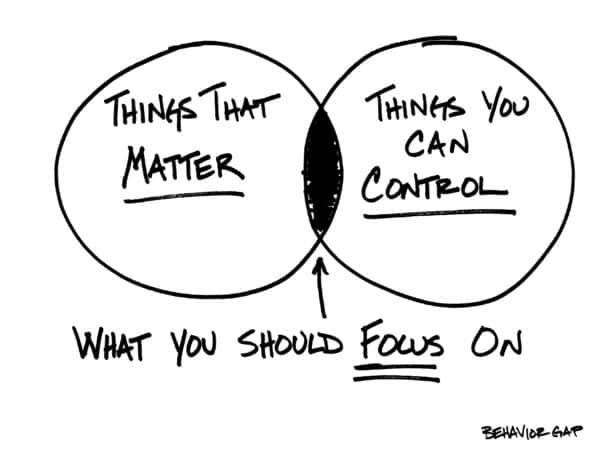“Are you interested in becoming a web3 developer? This guide will provide you with the essential steps to kickstart your journey towards mastering this cutting-edge technology and building decentralized applications.”
What is web3 development and why is it important?
The Personal Story
As an AI expert, I was always fascinated by the potential of blockchain technology to revolutionize the way we interact with the internet. However, it wasn’t until I started exploring web3 development that I truly began to understand just how powerful this technology could be. Web3 development refers to the creation of decentralized applications (dApps) that run on blockchain platforms like Ethereum and Polkadot. These dApps can offer a level of security, transparency, and trust that simply isn’t possible with traditional web applications.
The Explanation
Web3 development is becoming increasingly important as more and more people begin to recognize the limitations of centralized systems. With centralized systems, users must trust a single entity to manage their data and ensure that transactions are secure. This reliance on third-party intermediaries can lead to issues with censorship, data breaches, and other forms of abuse.
By contrast, decentralized applications built on blockchain platforms use smart contracts to automate transactions and ensure that they are executed according to predefined rules. Because these smart contracts are stored on a distributed ledger that is maintained by a network of nodes rather than a single entity, they are inherently more secure and transparent than traditional systems.
In addition to offering increased security and transparency, web3 development also has the potential to disrupt existing business models by enabling new forms of peer-to-peer interaction. For example, dApps like Uniswap allow users to trade cryptocurrencies without relying on centralized exchanges.
Basic skills required to become a web3 developer
The Personal Story
When I first started learning about web3 development, I was intimidated by all of the new concepts and technologies involved. However, as I began building my own dApps and experimenting with different tools and frameworks, I realized that many of the skills required for web3 development were simply extensions of the programming knowledge I already had.
The Explanation
To become a web3 developer, you will need a solid foundation in programming and computer science fundamentals. This includes knowledge of data structures, algorithms, and software design patterns. In addition to these core skills, there are several other areas that are particularly important for web3 development:
– Blockchain fundamentals: You will need to understand the basics of blockchain technology, including how transactions are validated and how consensus is reached.
– Smart contract development: Smart contracts are self-executing programs that run on a blockchain platform. To build dApps, you will need to know how to write and deploy smart contracts using languages like Solidity.
– Web3 libraries: There are several libraries available that can help simplify the process of building decentralized applications. These include tools like Web3.js and Truffle.
– Cryptography: Because security is such an important aspect of web3 development, you will need to have a good understanding of cryptographic concepts like public/private key encryption and hashing.
While these skills may seem daunting at first, with practice and persistence they can be mastered by anyone with a passion for technology and a willingness to learn.
Programming languages to learn for web3 development
The Personal Story
As someone who has been programming for years, I was initially drawn to web3 development because it offered an opportunity to learn new languages and frameworks. While there was definitely a learning curve involved in picking up new technologies like Solidity and Web3.js, I found that these tools quickly became second nature as I began building my own dApps.
The Explanation
There are several programming languages that are commonly used in web3 development. Some of the most important ones include:
– Solidity: This is the primary language used for writing smart contracts on Ethereum. It is similar to JavaScript in syntax and can be used to implement complex business logic on the blockchain.
– Rust: Rust is a systems programming language that is used for building high-performance applications. It is particularly well-suited for developing blockchain infrastructure and has been adopted by several popular projects like Polkadot and Chainlink.
– JavaScript: While not specifically designed for web3 development, JavaScript is widely used in the industry for building decentralized applications. Libraries like Web3.js make it easy to interact with blockchain networks using JavaScript code.
– Vyper: Vyper is a newer language that was developed specifically for Ethereum smart contract development. It is designed to be more secure and easier to audit than Solidity.
In addition to these languages, there are also several frameworks and tools that can help simplify the process of building dApps. Some of the most popular ones include Truffle, Embark, and Ganache.
Getting started with blockchain technology and its applications in web3 development
The Personal Story
When I first started exploring blockchain technology, I was overwhelmed by all of the different concepts and jargon involved. However, as I began reading more about how blockchains worked and experimenting with different platforms, I began to see how this technology could revolutionize industries ranging from finance to healthcare.
The Explanation
If you’re interested in getting started with blockchain technology and web3 development, there are several resources available that can help you get up to speed quickly:
– Online courses: Platforms like Coursera and Udemy offer a wide range of courses on topics like blockchain fundamentals, smart contract development, and decentralized application design.
– Documentation: Most blockchain platforms have extensive documentation available that can help you understand how their systems work. For example, Ethereum has a comprehensive developer portal that includes tutorials, API documentation, and more.
– Open-source projects: There are many open-source projects in the web3 space that you can contribute to and learn from. By participating in these projects, you can gain valuable experience working with real-world blockchain applications.
– Conferences and meetups: Attending conferences and meetups is a great way to network with other developers in the web3 space and stay up-to-date on the latest trends and developments.
By taking advantage of these resources, you can quickly gain a solid understanding of blockchain technology and begin building your own decentralized applications.
Popular blockchain platforms used in web3 development
The Personal Story
As someone who has worked with several different blockchain platforms over the years, I’ve come to appreciate the unique strengths and weaknesses of each one. While some platforms are better suited for certain types of applications than others, all of them offer exciting opportunities for innovation and disruption.
The Explanation
There are many different blockchain platforms available that can be used for web3 development. Some of the most popular ones include:
– Ethereum: Ethereum is one of the most widely used blockchain platforms for building decentralized applications. It offers a powerful smart contract language (Solidity) as well as a robust ecosystem of tools and frameworks.
– Polkadot: Polkadot is a newer platform that aims to enable interoperability between different blockchains. It uses a unique architecture that allows multiple blockchains to work together seamlessly.
– Binance Smart Chain: Binance Smart Chain is a high-performance blockchain platform that is designed to be compatible with Ethereum. It offers low transaction fees and fast confirmation times.
– Cardano: Cardano is another popular platform that uses a proof-of-stake consensus algorithm instead of proof-of-work like Bitcoin and Ethereum. This makes it more energy-efficient while still offering strong security guarantees.
Each platform has its own strengths and weaknesses, so it’s important to choose one that is well-suited for your particular use case.
How smart contracts work and their use in web3 projects
The Personal Story
When I first started learning about smart contracts, I was amazed by how much they could do. By enabling self-executing programs that run on a blockchain, smart contracts can automate many types of transactions and eliminate the need for intermediaries.
The Explanation
Smart contracts are computer programs that run on a blockchain platform like Ethereum. They are used to automate transactions and enforce rules without the need for a third-party intermediary.
To understand how smart contracts work, it’s helpful to think of them as digital vending machines. Just as a vending machine will automatically dispense a snack when you insert the correct amount of money, a smart contract will automatically execute a transaction when certain conditions are met.
For example, let’s say that you want to create a decentralized crowdfunding campaign using Ethereum. You could write a smart contract that specifies the rules for the campaign, such as how much money needs to be raised and what happens if the goal is not met. Once the contract is deployed to the Ethereum network, anyone can interact with it by sending ether (the cryptocurrency used on Ethereum) to its address.
If enough ether is raised before the deadline specified in the contract, then the campaign is considered successful and funds are released to the project creator. If not enough ether is raised, then all funds are returned to their original owners. Because these rules are encoded in a smart contract rather than being managed by a centralized platform like Kickstarter or GoFundMe, there is no need for trust in an intermediary.
Smart contracts have many other potential applications beyond crowdfunding campaigns. They can be used for everything from supply chain management to real estate transactions.
Developing decentralized applications (dApps) as a web3 developer
The Personal Story
As someone who has built several dApps over the years, I can attest to the fact that developing decentralized applications can be both challenging and rewarding. Because dApps run on a blockchain platform, they require a different approach to development than traditional web applications.
The Explanation
To develop a decentralized application, you will need to have a solid understanding of both blockchain technology and the programming languages and frameworks used in web3 development. Some of the key steps involved in building a dApp include:
– Designing the architecture: Before you start writing code, you will need to design the overall architecture of your application. This includes deciding which blockchain platform to use, how data will be stored and accessed, and what types of smart contracts will be needed.
– Writing smart contracts: Smart contracts are at the heart of any dApp. You will need to write code that specifies the rules for your application and ensures that transactions are executed correctly.
– Building the frontend: Once your smart contracts are written, you will need to build a frontend interface that allows users to interact with your application. This typically involves using web technologies like HTML, CSS, and JavaScript.
– Deploying your application: Finally, you will need to deploy your application to a blockchain platform so that it can be accessed by users. This typically involves paying transaction fees (known as gas fees) in order to execute smart contract code on the network.
Developing dApps can be challenging due to the complexity of blockchain technology and the need for security and scalability. However, with persistence and practice, anyone can become proficient at building decentralized applications.
Tools and frameworks used by web3 developers
The Personal Story
As someone who has worked on many different web3 projects over the years, I’ve come to rely on several key tools and frameworks that have helped me streamline my development workflow.
The Explanation
There are many different tools and frameworks available that can help simplify the process of web3 development. Some of the most popular ones include:
– Web3.js: Web3.js is a JavaScript library that allows developers to interact with Ethereum nodes using HTTP or IPC connections. It provides a simple API for sending transactions, reading data from the blockchain, and more.
– Truffle Suite: Truffle is a suite of tools that makes it easy to develop, test, and deploy smart contracts on Ethereum. It includes a development environment, testing framework, and deployment pipeline.
– Remix IDE: Remix is an online integrated development environment (IDE) for developing smart contracts on Ethereum. It includes a code editor, compiler, debugger, and more.
– Hardhat: Hardhat is a development environment for building smart contracts on Ethereum. It includes features like automated testing, debugging tools, and integration with other development tools like Ganache.
In addition to these tools, there are also several blockchain-specific frameworks available that can help you build decentralized applications more easily. These include frameworks like Embark and DappHub.
Staying updated with the latest trends and developments in web3 technology
The Personal Story
As someone who works in the fast-paced world of web3 development, I’ve learned that staying up-to-date with the latest trends and developments is essential for success. Whether it’s attending conferences or following industry leaders on social media, there are many ways to stay informed about what’s happening in this exciting field.
The Explanation
Web3 technology is constantly evolving as new platforms emerge and existing ones are improved. To stay up-to-date with the latest trends and developments in this field, there are several strategies you can use:
– Attend conferences: Conferences like Devcon and EthCC bring together some of the brightest minds in the web3 space. Attending these events is a great way to network with other developers, learn about new technologies, and get inspired by the latest innovations.
– Follow industry leaders: Following thought leaders in the web3 space on social media platforms like Twitter and LinkedIn can help you stay informed about the latest trends and developments. Some of the most influential voices in this field include Vitalik Buterin (founder of Ethereum), Gavin Wood (founder of Polkadot), and Aya Miyaguchi (executive director of the Ethereum Foundation).
– Read industry publications: There are several online publications that cover news and analysis related to web3 technology. Some of the most popular ones include Coindesk, CryptoSlate, and The Block.
– Participate in online communities: There are many online communities dedicated to web3 development, including forums like Reddit’s r/ethdev and Discord channels like Ethresear.ch. By participating in these communities, you can connect with other developers, ask questions, and share your own insights.
By staying informed about the latest trends and developments in web3 technology, you can position yourself as a thought leader in this exciting field.
Best practices for developing secure and scalable web3 applications
The Personal Story
As someone who has worked on many different web3 projects over the years, I’ve come to appreciate the importance of building applications that are both secure and scalable. While there is no one-size-fits-all solution to this challenge, there are several best practices
Collaborating with other developers and contributing to open-source projects in the web3 space
As a web3 developer, collaborating with other developers and contributing to open-source projects is essential for growth and development. Working on open-source projects allows you to work with experienced developers, learn new skills, and gain exposure to different technologies. Contributing to open-source projects also helps build your portfolio, which can be beneficial when seeking freelance or full-time employment opportunities.
Benefits of Collaborating with Other Developers
Collaborating with other developers provides an opportunity to learn from others’ experiences and knowledge. It enables you to gain insights into different approaches that can help you improve your coding skills. Moreover, it provides a platform for sharing ideas, discussing best practices, and getting feedback on your work.
Tips for Collaborating with Other Developers
- Be respectful of others’ opinions and ideas.
- Communicate regularly to ensure everyone is on the same page.
- Be open-minded and willing to learn from others.
- Acknowledge contributions made by others.
Monetizing skills as a web3 developer through freelance work or full-time employment opportunities
The demand for web3 developers has been increasing rapidly due to the growing interest in blockchain technology. This presents an excellent opportunity for web3 developers looking to monetize their skills either through freelance work or full-time employment opportunities.
Finding Freelance Work as a Web3 Developer
To find freelance work as a web3 developer, it’s essential first to build a strong portfolio showcasing your skills and experience. You can then use online platforms such as Upwork or Freelancer.com to find clients looking for web3 developers. You can also attend blockchain conferences and networking events to meet potential clients.
Tips for Finding Freelance Work as a Web3 Developer
- Build a strong portfolio showcasing your skills and experience.
- Attend blockchain conferences and networking events to meet potential clients.
- Use online platforms such as Upwork or Freelancer.com to find freelance work opportunities.
- Be responsive and professional when communicating with potential clients.
Finding Full-Time Employment Opportunities as a Web3 Developer
To find full-time employment opportunities as a web3 developer, it’s essential to keep an eye on job postings on job boards such as Indeed or LinkedIn. It’s also advisable to build connections with people in the industry through attending events, joining online communities, and participating in hackathons.
Tips for Finding Full-Time Employment Opportunities as a Web3 Developer
- Keep an eye on job postings on job boards such as Indeed or LinkedIn.
- Attend blockchain conferences, join online communities, and participate in hackathons to build connections within the industry.
- Ensure that your resume is up-to-date and tailored to the specific job you’re applying for.
- Be prepared for technical interviews that assess your coding skills and knowledge of blockchain technology.
Certifications or courses to enhance skills as a web3 developer
Certifications or courses can be beneficial for enhancing skills as a web3 developer. They provide structured learning programs designed by experts in the field that cover various topics related to web3 development. Certifications or courses can help you stay up-to-date with the latest technologies and best practices in web3 development.
Popular Certifications or Courses for Web3 Developers
There are various certifications or courses available for web3 developers, including:
- Ethereum Development Course by ConsenSys Academy
- Blockchain Developer Bootcamp by Blockgeeks
- Cryptocurrency Trading Course by Udemy
- Solidity Programming Course by Ivan on Tech Academy
Tips for Choosing a Certification or Course as a Web3 Developer
- Research the certification or course to ensure that it covers topics relevant to your career goals.
- Ensure that the certification or course is offered by reputable organizations with experienced instructors.
- Consider the cost of the certification or course and whether it fits within your budget.
- Read reviews from other students who have taken the certification or course to gauge its effectiveness.
The importance of community involvement in the world of web3 development and how to get involved
Involvement in the web3 developer community is essential for growth and development. It provides an opportunity to learn from others, share ideas, and collaborate on projects. Community involvement also helps build connections within the industry that can be beneficial when seeking employment opportunities.
Benefits of Community Involvement in Web3 Development
The benefits of community involvement in web3 development include:
- Learning new skills and approaches from other developers.
- Gaining exposure to different technologies and blockchain projects.
- Building connections with people within the industry that can lead to employment opportunities.
- Contributing to open-source projects that can help build your portfolio and showcase your skills.
Ways to Get Involved in the Web3 Developer Community
- Attend blockchain conferences and networking events.
- Join online communities such as Reddit or Discord that are focused on web3 development.
- Participate in hackathons or other coding challenges.
- Contribute to open-source projects on platforms such as GitHub.
Tips for becoming a successful web3 developer
Becoming a successful web3 developer requires dedication, hard work, and a willingness to learn. Here are some tips for becoming a successful web3 developer:
Tips for Becoming a Successful Web3 Developer
- Stay up-to-date with the latest blockchain technologies and best practices through reading blogs, attending conferences, and taking courses or certifications.
- Build a strong portfolio showcasing your skills and experience by contributing to open-source projects or working on personal projects.
- Collaborate with other developers to learn from their experiences and gain exposure to different approaches.
- Get involved in the web3 developer community by attending events, joining online communities, participating in hackathons, and contributing to open-source projects.
- Be patient and persistent. Becoming a successful web3 developer takes time, effort, and dedication. Don’t give up if you encounter challenges along the way.
In conclusion, becoming a web3 developer requires dedication and continuous learning. By following the tips mentioned in this article, you can start your journey towards becoming a successful web3 developer. If you need any assistance or want to explore our AI services, feel free to get in touch with us. We are always happy to help!

What do I need to be a Web3 developer?
A Web 3.0 developer is a professional with expertise in decentralized technology for computer systems, such as data sharing and distributed storage. Additionally, they must have extensive knowledge of computer science and must be skilled in programming languages like Rust, Java, and JavaScript.
Are Web3 developers in demand?
The excitement around Web3 reached its highest point in 2022, but in 2023, the focus will shift from hype to practical usage and implementation. Developers who want to stay relevant should familiarize themselves with the underlying technologies. While some may think that Web3 is mostly about blockchain-based cryptocurrencies, there is much more to it.

How much does a Web3 developer make?
Web3 developers earn an average salary ranging from $116k to $171k annually, which is influenced by factors such as the type of technology and programming language used, years of experience, location, and job seniority.
Can I learn web3 without coding?
There are no specific requirements for learning about Web3.0 technology, meaning anyone can start from scratch without prior programming knowledge.
Is it hard to get a job at web3?
Starting a web3 career can be difficult if you lack experience in the field, but there are ways to improve your chances. One strategy is to educate yourself on web3 and the blockchain industry.
How much does Web3 pay per hour?
In the UK, mid-level Web3 developers can expect to earn $33 per hour while their counterparts in the US can earn $60 per hour. Senior developers in the UK make slightly more at $33.33 per hour, while those in the US can earn up to $72 per hour. However, pay rates may differ based on location and time of year.








